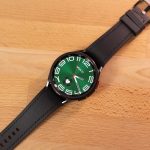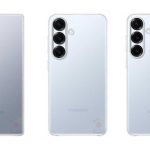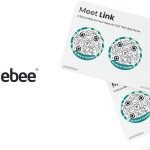Personal Finance Insider writes about products, strategies, and tips to help you make smart decisions with your money. We may receive a small commission from our partners, like American Express, but our reporting and recommendations are always independent and objective. Terms apply to offers listed on this page. Read our editorial standards.
*Chime is a financial technology company, not a bank. Banking services provided by, and debit card issued by, The Bancorp Bank or Stride Bank, N.A.; Members FDIC.
Best checking accounts of April 2022
Checking accounts are optimal tools for everyday expenses and transactions.
The best checking accounts don’t charge monthly fees or make it easy to waive them. They’ll also come with unique perks or features, like cash-back rewards, early direct deposit, or a competitive interest rate.
We reviewed over two dozen financial institutions to find banks that offer appealing checking account options.
Our top picks come with a debit card, FDIC insurance, and mobile app access. Most are free of monthly maintenance fees, too, or could be after meeting certain deposit or balance requirements.
Our expert panel for this guide
We consulted banking and financial planning experts to inform these picks and provide their advice on finding the best checking accounts for your needs. You can read their insights at the bottom of this post.
Insider
We’re focusing on what will make a checking account most useful, including monthly fees, ATM access, rewards, and more.
Learn more about our top picks
Why it stands out: With no monthly service fees, no foreign transaction fees, and a variety of overdraft protection options, Capital One is one of the cheapest checking accounts out there. The bank has access to over 39,000 Capital One and AllPoint ATMs and connects to Zelle for digital money transfers. All balances earn
What to look out for: Though Capital One Cafés are popping up in big cities around the US, the bank only operates about 470 branches in nine states.
Why it stands out: Discover doesn’t charge monthly fees, and you can enroll in free overdraft protection. You’ll earn 1% cash back on up to $3,000 in debit card purchases every month, and we’ve chosen Discover as one of our favorite rewards checking accounts.
What to look out for: You can only use your Discover debit card in the US, Canada, Mexico, and the Caribbean.
Why it stands out: Charles Schwab doesn’t charge ATM fees, and the bank offers unlimited refunds worldwide when an ATM provider charges you a fee. Charles Schwab also doesn’t charge foreign transaction fees, and it has free overdraft protection.
What to look out for: You must open a brokerage account with Charles Schwab before opening a checking account.
Why it stands out: This account gives you the opportunity to earn both cash-back rewards and interest if you maintain a $2,500 balance. You can earn cash back on an unlimited amount each month, and you’ll earn up to 1% on select purchases.
What to look out for: You must have $2,500 to make the most of your checking account. LendingClub also compounds interest monthly rather than daily, which will affect how much you earn in the long run.
Why it stands out: Axos has a free network of over 91,000 ATMs. It also reimburses an unlimited amount of fees charged by out-of-network ATM providers. The bank doesn’t charge overdraft fees. You have the potential to earn a high APY.
What to look out for: You can earn up to 1.25% APY, but you must meet certain criteria.
Each month, you’ll earn 0.40% APY if you receive at least $1,500 in direct deposits each month. You have to meet this requirement first in order to be eligible for additional interest.
To earn up to 1.25% APY, you also have to do the following monthly:
- Make 10 debit card transactions (minimum $3 per transaction) or you need to sign up for Account Aggregation/Personal Finance Manager.
- Keep at least a daily average of $2,500 in an Axos Managed Portfolios Invest Account.
- Keep at least a daily average of $2,500 in an Axos Self Directed Trading Invest Account.
- Make a monthly Axos consumer loan payment with your Reward Checking account.
Why it stands out: You can use 38,000 ATMs for free. Chime doesn’t charge foreign transaction fees. You can receive your paycheck up to two days early. If you also have a high-yield
What to look out for: Chime’s SpotMe feature allows you to overdraw by up to $200 with no overdraft fee — but you must receive $500 in direct deposits each month to qualify for SpotMe. Any transactions that overdraw more than $200 won’t be processed. You’ll just be denied the purchase.
Why it stands out: Alliant ranks as one of our top credit union picks, so if you prefer a credit union over a bank, then this checking account could be a good choice. You don’t need to meet any qualifications to earn interest. Alliant’s free network includes over 80,000 ATMs, and the credit union reimburses up to $20 per month in fees charged by out-of-network ATM providers. Alliant does not charge overdraft fees should you overdraw your account.
What to look out for: Like many credit unions, Alliant compounds your interest monthly rather than daily, which will limit how much you earn.
Why it stands out: You can receive your paycheck up to two days early. You don’t need to meet any qualifications to earn interest on your balance. Set the maximum amount you want in your account through Wealthfront’s Autopilot feature. When your balance exceeds that amount by over $100, Wealthfront will move the excess funds into a Wealthfront investment account.
What to look out for: Wealthfront doesn’t charge overdraft fees, but this also means you don’t even have the option to overdraw from the account. Your purchase would just be denied.
Other checking accounts that didn’t make the cut
Ally Interest Checking Account (Member FDIC): This is a solid online checking account that pays interest on your balance, but its features aren’t as unique as what you’ll find with some of our top picks.HMBradley Account (Member FDIC): This is a good option if you want a hybrid checking/savings account that pays up to 3% APY, but you must meet certain qualifications to earn the highest interest rate.The Citi Account Package Checking Account (Member FDIC): A fine checking account with options to waive the monthly fee, but customer satisfaction is below average, according to J.D. Power’s US National Banking Satisfaction Study.US Bank Easy Checking Account (Member FDIC): A standard checking account with options to waive the $6.95 monthly fee, and customer satisfaction is slightly above average, according to J.D. Power’s US National Banking Satisfaction Study.CIT Bank eChecking Account (Member FDIC): The minimum opening deposit for this account is $100 and it only offers up to $15 of fee-free ATM visits a month; otherwise it’s a fine account earning 0.10% APY on balances below $25,000.Betterment Checking Account (Member FDIC): This online checking account reimburses ATM and foreign transaction fees, and there are no monthly service charges or overdraft penalties. However, Betterment is still in the process of developing features like physical checkbooks and joint accounts.TD Bank Convenience Checking Account (Member FDIC): TD Bank ranked No. 3 on J.D. Power’s US National Banking Satisfaction Study. But its only ATM and branch locations are on the East Coast, and there’s a $3 fee each time you use a non-TD ATM.TD Bank Beyond Checking Account (Member FDIC): This account is favorable for people with high balances. Non-TD ATM fees are reimbursed, but only with a $2,500 minimum daily balance.PNC Virtual Wallet with Performance Select (Member FDIC): PNC ranked No. 2 on J.D. Power’s 2021 US National Banking Satisfaction Study. But in order to waive the $25 monthly fee, you need $5,000 or more in monthly direct deposits, or a $5,000 average balance, or $25,000 in all PNC accounts (including investments). Branch access is limited to the Eastern US.PNC Virtual Wallet with Performance Spend (Member FDIC): PNC ranked No. 2 on J.D. Power’s 2021 US National Banking Satisfaction Study. But in order to waive the $15 monthly fee, you need $2,000 or more in monthly direct deposits, or a $2,000 average balance, or $10,000 in all PNC deposit accounts. Branch access is limited to the Eastern US.HSBC Premier Checking Account ($600) (Member FDIC): HSBC offers a good variety of checking accounts, although only those with high minimum balance or deposit requirements get ATM fees reimbursed.Axos Bank Essential Checking (Member FDIC): A solid online-only checking account with unlimited ATM fee reimbursement, but nothing extra special.Axos Bank Rewards Checking (Member FDIC): This account offers up to 1% cash back on purchases (you can earn up to $2,000 per month), but doesn’t count transactions from grocery stores and requires an average daily balance of $1,500 to earn the cash back. If your balance falls below that limit, you get 0.50% cash back.TIAA Bank Basic Checking Acccount (Member FDIC): A solid account that waives the already low $5 fee with a daily average balance of $25. To enjoy unlimited ATM reimbursement, however, you need to keep an average daily balance of at least $5,000.TIAA Yield Pledge® Checking Account (Member FDIC): No monthly service fees and all balances earn a competitive APY for the first year; after that, the rate drops. To enjoy unlimited ATM reimbursement you need to keep an average daily balance of at least $5,000. You also need at least $100 to open the account.Wells Fargo Everyday Checking Account (Member FDIC): Wells Fargo’s account is comparable to other checking accounts, but Wells Fargo ranked lower on J.D. Power’s US National Banking Satisfaction Study than other banks.SoFi Money® (Member FDIC): This hybrid checking account/savings account pays interest and lets you earn cash-back rewards, but you must deposit $500 per month to qualify for either.Acorns Spend Account (Member FDIC): When you swipe your Acorns Spend debit card, Acorns will round your purchase up to the nearest dollar and immediately transfer the spare change to your Acorns Invest Account.USAA Classic Checking (Member FDIC): USAA is specifically for military members and family, and new recruits get paid a day early with a checking account.Varo Checking Account (Member FDIC): This is a solid checking account with no monthly fees, but Varo will charge you for using an out-of-network ATM.Consumers Credit Union Free Rewards Checking Account (Federally insured by the NCUA): Consumers pays a great rate on balances under $10,000, but you’re only eligible to earn the best interest rate if you meet activity requirements with your debit and credit card.Aspiration Account (Member FDIC): You have the option to plant a tree every time you swipe your debit card, and you can earn 3% to 5% cash back when you shop at companies like TOMS and Blue Apron.Aspiration Plus Account t (Member FDIC): You’ll receive 10% cash back on select purchases and earn interest on your balance, but there’s a $3.99 monthly fee.
Are these banks trustworthy?
The Better Business Bureau assigns companies grades, ranging from F to A+. A strong BBB score indicates a company responds effectively to customer complaints, advertises honestly, and is transparent about business practices. Here are the BBB grades for our top picks:
| Institution | BBB |
| Capital One 360 | A |
| Discover | A+ |
| Charles Schwab | A+ |
| LendingClub Bank | A- |
| Axos Bank | A+ |
| Chime | A+ |
| Alliant Credit Union | A+ |
| Wealthfront | F |
LendingClub and Wealthfront are the only institutions on our list that don’t have at least an A rating from the BBB.
The BBB cites the fact that Wealthfront hasn’t responded to a large percentage of complaints on the BBB website as one reason for its bad grade — but it hasn’t responded to two of six total complaints. LendingClub has an A- due to government action against the business.
A strong BBB grade doesn’t guarantee you’ll have a smooth relationship with a company, though.
In July 2021, LendingClub Corporation paid $18 million in a settlement with the Federal Trade Commission when accused of deceptive lending practices that charged consumers hidden fees and said they were approved for loans even when they weren’t.
Chime has also been involved in one recent public controversy: The platform used the URL “Chimebank.com” and the words “bank” and “banking” but Chime isn’t licensed as a bank. Chime is a banking platform, and is insured by a bank.
How did we choose the best checking accounts?
We considered offerings at over 20 financial institutions, as well as reviews at popular comparison sites like Bankrate and Nerdwallet, to determine the strongest options for online banking, college students, branch access, low fees, and rewards. We gave precedence to no-monthly-fee checking accounts or those with the option to waive monthly fees with qualifying activities; overdraft protection options; widespread ATM access and/or reimbursement for ATM fees; and mobile banking capabilities.
We also polled Insider employees for their favorite picks and considered J.D. Power’s US National Banking Satisfaction Study for 2021, which measures customer satisfaction at America’s largest retail banks.
Unlike a savings account, a checking account doesn’t need to have a high interest rate to be good. In fact, the annual percentage yield (APY) shouldn’t matter much if you’re using your checking account to pay your monthly bills and cover expenses in short order. If your money is constantly flowing in and out of your checking account, it won’t get a chance to earn much interest anyway.
Frequently asked questions
Why trust our recommendations?
At Personal Finance Insider, we strive to help smart people make the best decisions with their money. We spent hours comparing and contrasting the features and fine print of nearly three dozen checking accounts available at over 20 national and online-only banks so you don’t have to.
We understand that “best” is often subjective, however, so in addition to highlighting the clear benefits of a checking account — no fees, for example — we outline the limitations, too.
Do checking accounts earn interest?
Some checking accounts do earn interest, but not all — and those that do typically don’t earn as much as savings accounts do. A few of our top picks pay interest, but Capital One is the only one that pays an above-average rate to every customer, regardless of your balance.
What is an interest checking account?
An interest checking account is an account that pays interest on your balance. Again, you likely won’t earn as high of a rate as you would with a savings account, because checking accounts are more geared toward accessing your cash than saving.
What banks offer fee-free checking accounts?
You can find no-fee checking accounts at a few big retail banks and nearly every online-only bank, including Ally, Capital One, Charles Schwab, Radius, Discover, Axos, SoFi Money, Simple, Chime, Wealthfront, Alliant, and HMBradley.
What’s the best bank for a checking account?
We believe Capital One offers the best checking account available right now, in large part thanks to $0 in monthly fees, multiple overdraft options, access to 39,000 Capital One ATMs and AllPoint ATMs, and mobile check deposit. As an added bonus, it also earns 0.10% APY on all balances.
Can I open a second checking account at the same bank?
Many banks allow you to open more than one checking account, but it’s usually unnecessary unless you need an individual account and a joint account.
Is it bad to have multiple checking accounts?
It’s not bad to have multiple checking accounts, but it’s usually not necessary. A checking account should hold cash that you are using to cover your expenses each month and no more than that. Any excess cash is best stored in a high-yield savings account, where it can earn up to 200 times more interest than a checking account, or in an investment account.
Which type of bank account is best for everyday transactions?
Typically, a checking account is the best type of account for regular purchases. Checking accounts typically come with a debit card and/or checks, and they don’t have a limit on how often you can make transactions like savings and money market accounts do.
The experts’ advice on choosing the best account for you
To learn more about what makes a good checking account and how to choose the best fit, four experts weighed in:
- Tania Brown, certified financial planner at SaverLife
- Roger Ma, certified financial planner with lifelaidout® and author of “Work Your Money, Not Your Life”
- Mykail James, MBA, certified financial education instructor, BoujieBudgets.com
- Laura Grace Tarpley, editor of banking, Personal Finance Insider
Here’s what they had to say about checking accounts. (Some text may be lightly edited for clarity.)
What makes a checking account good or not good?
Roger Ma, CFP:
“I would look at the ATM branch locations and then minimum balance amounts to not incur a monthly fee … I think there’s other stuff that could make life easier, whether it’s a free checks, online bill pay, are they in the Zelle network?”
Laura Grace Tarpley, Personal Finance Insider:
“I would make a list of the top three to five things you want out of a checking account. Is it a great mobile app, 24/7 customer support, no ATM fees? Then research the best banks for those features.”
How can someone determine whether a bank is the right fit for them?
Tania Brown, CFP:
“Obviously, you want to make sure it’s FDIC insured. Also, your banking experience — do you like walking into a bank? Well, then you need someone local. Do you just not care if you ever see your bank? Then you’re okay online. Do you write checks? Do you not write checks? So it’s thinking through how your experience with it is going to be before you make that decision.”
Mykail James, CFEI:
“The No. 1 thing about a checking account is you should know what provider the debit card is coming from. And a lot of people don’t think about that, because there are places that don’t accept MasterCard or don’t accept an Amex.”
Powered by WPeMatico





